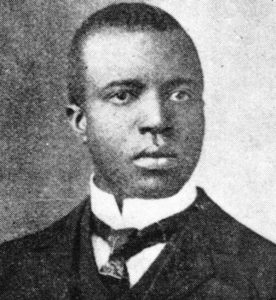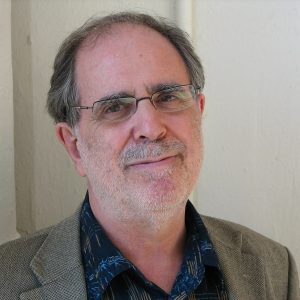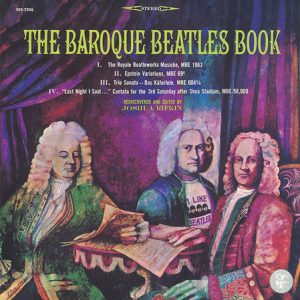
Scott Joplin died penniless and all but forgotten on April 1, 1917 in an asylum in New York City’s gigantic Manhattan State Hospital, his brain reduced to black-currant jelly by syphilis. He left behind him a “terminally unproduced opera” entitled Treemonisha and a body of piano rags that virtually defined the genre and are as important and representative a set of national piano works as are Chopin’s Mazurkas and Polonaises, Liszt’s Hungarian Rhapsodies, and Dvořák’s Slavonic Dances (which were indeed originally piano works, albeit for piano duet).
With his death began the big chill for Joplin’s wonderful music. In the

Enter the American musicologist, pianist, and conductor Joshua Rifkin, who was born on April 22, 1944 in New York City. A crazy-talented dude, he received degrees from the Juilliard School (B.S., 1964) and Princeton University (M.F.A., 1969). He is a highly respected (and refreshingly controversial) musicologist whose research and recordings of the music of Johan Sebastian Bach are of particular note. He has performed as both a conductor and pianist all over the international map and has recorded music spanning from the sixteenth through the twentieth centuries. He has taught at Brandeis, Harvard, and Yale Universities, and is currently a Professor of Music at Boston University. (Major creds, from top to bottom.)
Fresh out of Juilliard, the 20-year-old Rifkin went to work as an “apprentice” at the brand-new, New York-based Nonesuch Records, which was founded in 1964. (The literature variously describes Rifkin’s initial tenure at Nonesuch as that of an “apprentice” and a “staffer”; I trust whatever he was, it was a paid position and not one of indentured servitude euphemistically referred to today as an “internship”).

Along with location, timing is everything, and Rifkin’s arrival at the nascent Nonesuch label could not have been better timed. Nonesuch was anxious to build its catalog of “budget recordings”, and Rifkin was perfectly positioned to create such recordings. In 1965, Nonesuch had one of its earliest successes with Rifkin’s album The Baroque Beatles Book, in which Rifkin composed 12 numbers in Baroque period style based on Beatles songs, replete with every Baroque cliché in the book and a degree of whimsical humor that undoubtedly made his friend and mentor Peter Schickele (“P.D.Q. Bach”) proud. (A little-known fact: Joshua Rifkin performed the counter-tenor solo in the premiere of Peter Schickele/P.D.Q. Bach’s parody cantata Iphigenia in Brooklyn!)
As a pre-teen, Rifkin had been “hooked” on New Orleans Jazz, and as such had experienced a passing interest in the music of Scott Joplin. That interest was rekindled by his friends, the composers William Bolcom (born 1938, and a fellow Nonesuch recording artist) and Eric Salzman (1933-2017). And so the idea for a recording project was born
Find out about the result this prescribed recording, and more, only on Patreon!
